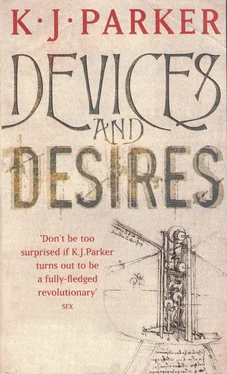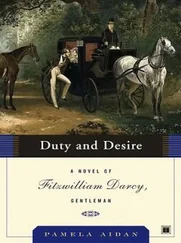K Parker - Devices and Desires
Здесь есть возможность читать онлайн «K Parker - Devices and Desires» весь текст электронной книги совершенно бесплатно (целиком полную версию без сокращений). В некоторых случаях можно слушать аудио, скачать через торрент в формате fb2 и присутствует краткое содержание. Жанр: Фэнтези, на английском языке. Описание произведения, (предисловие) а так же отзывы посетителей доступны на портале библиотеки ЛибКат.
- Название:Devices and Desires
- Автор:
- Жанр:
- Год:неизвестен
- ISBN:нет данных
- Рейтинг книги:3 / 5. Голосов: 1
-
Избранное:Добавить в избранное
- Отзывы:
-
Ваша оценка:
- 60
- 1
- 2
- 3
- 4
- 5
Devices and Desires: краткое содержание, описание и аннотация
Предлагаем к чтению аннотацию, описание, краткое содержание или предисловие (зависит от того, что написал сам автор книги «Devices and Desires»). Если вы не нашли необходимую информацию о книге — напишите в комментариях, мы постараемся отыскать её.
Devices and Desires — читать онлайн бесплатно полную книгу (весь текст) целиком
Ниже представлен текст книги, разбитый по страницам. Система сохранения места последней прочитанной страницы, позволяет с удобством читать онлайн бесплатно книгу «Devices and Desires», без необходимости каждый раз заново искать на чём Вы остановились. Поставьте закладку, и сможете в любой момент перейти на страницу, на которой закончили чтение.
Интервал:
Закладка:
The woman went away again, white with fear and secretly hugging herself with joy at securing a royal mandate to smuggle at will across the border; a month later, she came back with a letter. She was, she stressed, only too pleased to be able to help; while she was there, however, there were one or two silly little things she'd like to mention, if he could spare the time. Luckily, she had the sense not to push her luck too far. He agreed; the mechanism was set up.
He never knew when she was going to write. He always replied at once, the same day, cancelling or forgetting about all other commitments. Letter days were long and busy. First, he would read it, six or seven times, methodically; the first reading took in the general tone and impression, each subsequent reading going deeper. Next, he would think carefully about everything she'd said, with a view to planning the outline of his reply. The actual writing of it generally took the afternoon and most of the evening, with two pauses in which he'd read her letter again, to make sure he'd got the facts and issues straight. Last thing at night, he'd read the letter and his reply over once more, and make the fair copy. From start to finish, sixteen hours. It was just as well he was used to long periods of intense concentration.
Valens reached out slowly towards the letter on the table, like the fencer in First advancing on an opponent of unknown capacity. This might, after all, be the letter that said there would be no more letters, and until he'd looked and seen that it wasn't, he daren't lower his guard to Third and engage with the actual text. His fingers made contact, gentle as the first pressure of blade on blade as the fencers gauge each other by feel at the narrow distance. Applying a minute amount of force through the pad of his middle finger, he drew it towards him until his hand could close around it. Then he paused, because the next movement would draw him into an irrevocable moment. He was a brave man (he wasn't proud of his courage; he simply acknowledged it) and he was afraid. Gentle and progressive as the clean loose of an arrow, he slid his finger under the fold and prised upwards against the seal until the brittle wax burst. The parchment slowly relaxed, the way a body does the moment after death. He unfolded the letter. Veatriz Longamen Sirupati to Valens Valentinianus, greetings.
You were right, of course. It was Meruina; fifty-third sonnet, line six. I was so sure I was right, so I looked it up, and now you can gloat if you want to. It's simply infuriating; you're supposed to know all about hounds and tiercels and tracking, and how to tell a stag's age from his footprints; how was I meant to guess you'd be an expert on early Mannerist poetry as well? I'm sure there must be something you haven't got the first idea about, but I don't suppose you'll ever tell me. I'll find out by pure chance one of these days, and then we'll see.
I sat at my window yesterday watching two of the men saw a big log into planks. They'd dug a hole so one of them could be underneath the log (you know all this); and the man on top couldn't see the other one, because the log was in the way. But they pulled the saw backwards and forwards between them so smoothly, without talking to each other (I wonder if they'd had a quarrel); it was like the pendulum of a clock, each movement exactly the same as the last; I timed them by my pulse, and they were perfect. I suppose it was just practice, they were so used to each other that they didn't have to think or anything, one would pull and then the other. How strange, to know someone so well, over something so mundane as sawing wood. I don't think I know anybody that well over anything.
Coridan-he's one of Orsea's friends from school-came to stay. After dinner one evening, he was telling us about a machine he'd seen once; either it was in Mezentia itself, or it was made there, it doesn't really matter which. Apparently, you light afire under an enormous brass kettle; and the steam rises from the spout up a complicated series of pipes and tubes into a sort of brass barrel, where it blows on a thing like a wheel with paddles attached, sort of like a water-mill; and the wheel drives something else round and round and it all gets horribly complicated; and at the end, what actually happens is that a little brass model of a nightingale pops up out of a little box and twirls slowly round and round on a little table, making a sound just like a real nightingale singing. At least, that's the idea, according to Coridan, and if you listen closely you can hear it tweeting and warbling away; but you need to be right up close, or else its singing is drowned out by all the whirrings and clankings of the machine.
Talking of birds; we had to go somewhere recently, and we rode down the side of an enormous field, Orsea said it was beans and I'm sure he was right. As we rode by a big flock of pigeons got up and flew off; when we were safely out of the way, they started coming back in ones and twos and landing to carry on feeding; and I noticed how they come swooping in with their wings tight to their bodies, like swimmers; then they glide for a bit, and turn; and what they're doing is turning into the wind, and their wings are like sails, and it slows them down so they can come in gently to land. As they curled down, it made me think of dead leaves in autumn, the way they drift and spin. Odd, isn't it, how many quite different things move in similar ways; as if nature's lazy and can't be bothered to think up something different for each one.
Another curious thing: they always fly up to perch, instead of dropping down. I suppose it's easier for them to stop that way. It reminds me of a man running to get on a moving cart.
I know we promised each other we wouldn't talk about work and things in these letters; but Orsea has to go away quite soon, with the army, and I think there's going to be a war. I hate it when he goes away, but usually he's quite cheerful about it; this time he was very quiet, like a small boy who knows he's done something wrong. That's so unlike him. If there really is to be a war, I know he'll worry about whether he'll know the right things to do-he's so frightened of making mistakes, I think it's because he never expected to be made Duke or anything like that. I don't know about such things, but I should think it's like what they say about riding a horse; if you let it see you're afraid of it, you can guarantee it'll play you up.
Ladence has been much better lately; whether it's anything to do with the new doctor I don't know, he's tried to explain what he's doing but none of it makes any sense to me. It starts off sounding perfectly reasonable-the human body is like a clock, or a newly sown field, or some such thing-but after a bit he says things that sound like they're perfectly logical and reasonable, but when you stop and think it's like a couple of steps have been missed out, so you can't see the connection between what he says the problem is, and what he's proposing to do about it. At any rate, it seems to be working, or else Ladence is getting better in spite of it. I don't care, so long as it carries on like this. I really don't think I could stand another winter like the last one.
When you reply, be sure to tell me some more about the sparrowhawks; did the new one fit in like you hoped, or did the others gang up on her and peck her on the roosting-perch? They remind me of my eldest sister and her friends-Maiaut sends her best wishes, by the way; I suppose that means they want something else, from one of us, or both. I do hope it won't cause you any problems (I feel very guilty about it all). I suppose I'm lucky; there's not really very much I can do for them, so they don't usually ask anything of me. I know it must be different for you; are they an awful nuisance? Sometimes I wonder if all this is necessary. After all, you're Orsea's cousin, so you're family, why shouldn't we write to each other? But it's better not to risk it, just in case Orsea did get upset. I don't imagine for one moment that he would, but you never know.
Читать дальшеИнтервал:
Закладка:
Похожие книги на «Devices and Desires»
Представляем Вашему вниманию похожие книги на «Devices and Desires» списком для выбора. Мы отобрали схожую по названию и смыслу литературу в надежде предоставить читателям больше вариантов отыскать новые, интересные, ещё непрочитанные произведения.
Обсуждение, отзывы о книге «Devices and Desires» и просто собственные мнения читателей. Оставьте ваши комментарии, напишите, что Вы думаете о произведении, его смысле или главных героях. Укажите что конкретно понравилось, а что нет, и почему Вы так считаете.












